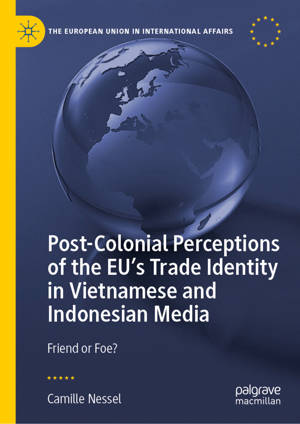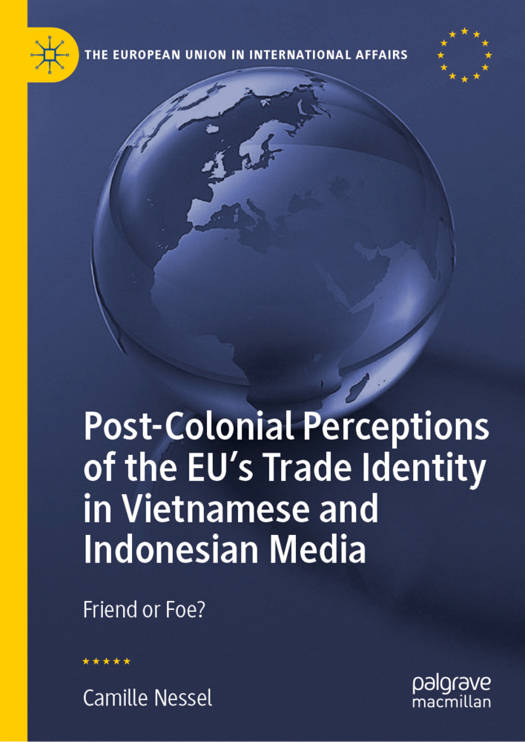
- Afhalen na 1 uur in een winkel met voorraad
- Gratis thuislevering in België vanaf € 30
- Ruim aanbod met 7 miljoen producten
- Afhalen na 1 uur in een winkel met voorraad
- Gratis thuislevering in België vanaf € 30
- Ruim aanbod met 7 miljoen producten
Post-Colonial Perceptions of the Eu's Trade Identity in Vietnamese and Indonesian Media
Friend or Foe?
Camille NesselOmschrijving
This book provides a comprehensive exploration of the European Union's trade policy and its external perception, incorporating a post-colonial perspective and utilizing a hermeneutic analysis of an extensive media dataset. It responds to the scholarly, educational, and practical demands for a deeper grasp of the intricate dynamics at the crossroads of trade, sustainable development, and identity development.
The research delves into the EU's identity as a global normative trading entity, examining systemic, identity-related, and specific-issue dimensions. By focusing on bilateral trading connections with former European colonies, the study advances a fresh decentering agenda within the realm of EU foreign policy and international relations. This agenda incisively questions the EU's Eurocentric standpoint, communications, and behaviours in its external interactions, notably with past colonies of EU member states, particularly in the context of global trade. This is timely giventhe new geopolitical context, with increased ideological rivalries while urgently demanding international cooperation to channel the effects of climate change.
Leveraging the concept of perceptions and framing, the research presents innovative insights substantiated by meticulous empirical observations. Consequently, this study enriches our comprehension of the EU's function and challenges as a trading entity and illuminates the intricacies of its interaction with Southeast Asian nations, contributing valuable wisdom to the domain of international relations.
Specificaties
Betrokkenen
- Auteur(s):
- Uitgeverij:
Inhoud
- Aantal bladzijden:
- 262
- Taal:
- Engels
- Reeks:
Eigenschappen
- Productcode (EAN):
- 9783031952319
- Verschijningsdatum:
- 20/08/2025
- Uitvoering:
- Hardcover
- Formaat:
- Genaaid
- Afmetingen:
- 148 mm x 210 mm

Alleen bij Standaard Boekhandel
Beoordelingen
We publiceren alleen reviews die voldoen aan de voorwaarden voor reviews. Bekijk onze voorwaarden voor reviews.











